GMet Hosts 15Th International Training Workshop On Climate Variability And Predictions (15ITWCVP)
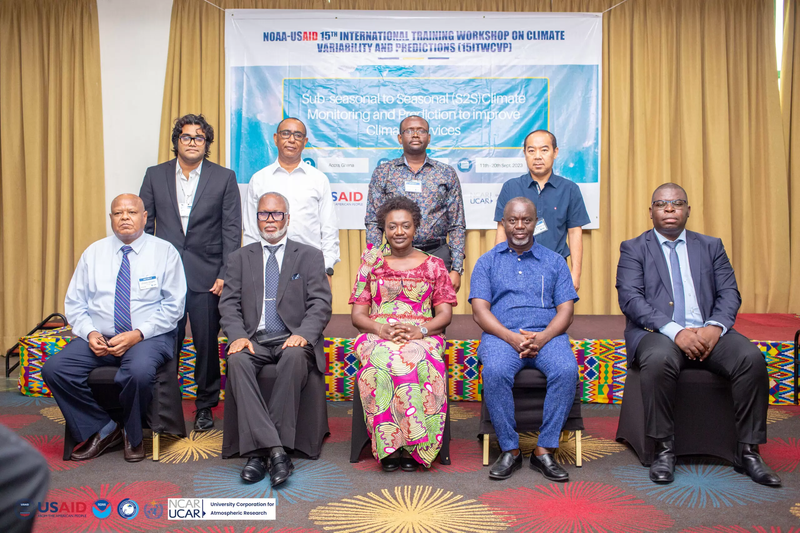
The Ghana Meteorological Agency (GMet) has successfully held the 15th International Training Workshop on Climate Variability and Predictions (15ITWCVP) in Accra, Ghana, in collaboration with NOAA’s Climate Prediction Center (CPC), the DRR Program of USAID, the World Meteorological Organization (WMO), and the University Corporation for Atmospheric Research.
This training workshop, which took place from September 11th to September 20th, 2023, significantly improved the Agency’s operational capabilities of in climate monitoring, forecasting, and the mapping of hazards. The Workshop which targeted meteorologists and climate scientists from across Africa shared advanced knowledge and experience in state-of-the-art tools for short-term climate predictions and climate monitoring.
Mr. Charles Bredu Badoo the Director of Administration and local organizing committee chairman who delivered the welcome address on behalf of the Board Chairman of the Agency, underscored the impacts of climate change and its main drivers.
“Climate change is now affecting everyone all over the world. We are gathered here because as stakeholders we have a common interest that our survival as human beings depend on climate action particularly adapting to climate impacts. Since the dawn of the 19th and 20th centuries, human activities have been the main driver of climate change, primarily due to the burning of fossil fuels like oil and gas, trapping the sun’s heat and raising temperatures. Clearing land and cutting down forests, oil and gas operations, activities in the energy industry, transport, construction, and agricultural sectors are causing greenhouse gases and keeping the earth’s temperature warmer than it would otherwise be to support life on earth”, he said.
The Deputy Minister of Communications and Digitalization, Hon. Ama Pomaa Boateng, representing Hon. Mrs. Ursula Owusu-Ekuful, stressed the need to support African National Meteorological and Hydrological Institutions since the growing impact of climate change in Africa is high.
“Undoubtedly, climate change is having a growing impact on the African continent, it has severely affected the most vulnerable and significantly contributed to food insecurity and increased hydrometeorological phenomena such as floods, drought, and coastal erosion which is becoming one of the devastating disasters in Ghana”. She also cited examples of numerous flooding incidents that were recorded in the Western and Eastern coastal towns of Ghana as well as inland areas recounting that as a reason for an enhanced and coordinated response system to mitigate the consequences of climate variability.
Hon. Ama Pomaa Boateng commended the support of organizations like USAID, NOAA, WMO, and UCAR in advancing climate services and encouraged the participants to consider the needs of the people they serve when making decisions about climate services. She also reaffirmed Ghana’s commitment to addressing climate change and invited everyone to experience Ghana’s culture and hospitality.
Mr. Eric Asuman, Acting Director-General of GMet, highlighted the importance of building the capacity of meteorological institutions. He acknowledged the growing impact of climate change on weather patterns and shared GMet’s plans, including developing a Climate Atlas for Ghana in collaboration with the Danish Meteorological Institute (DMI). He emphasized the need for early warning systems to protect agriculture and the economy.
“There is a gradual change in the rainfall pattern and weather-related variables that have directly affected various sectors of the economy, and has caused devastating disasters to Ghana and the world at large”.
In his closing words, Mr. Asuman encouraged participants to use the knowledge gained to benefit their weather and water institutions. Together, they can contribute to a more climate-resilient future for all of Africa.
Dr. Wilfran Moufouma Okia, the Operational Climate Prediction Strategy for Improved Development and Delivery of Climate Services at WMO, expressed his gratitude to the Ghanaian government and by extension the Ghana Meteorological Agency for agreeing to host this all-important training workshop. He also mentioned that early warning systems have proven to be an essential way to adapt to climate change and variability thereby, providing a cost-effective and reliable way to protect life.
Dr. Zewdu Segele, Senior Climate Scientist with NOAA and an Instructor for the training workshop outlined the various topics participants were introduced to which includes, Geographic Information System (GIS), data analysis, map making, and machine learning applications for weather forecasting and extreme event detection. The training also covered sub seasonal to seasonal forecasting techniques, including the use of advanced tools like the Climate Prediction Tool (CPT) and Logistic Regression. Overall, the workshop empowered the participating institutions to strengthen their operational sub seasonal to seasonal prediction capabilities and provide real-time forecasts and hazards outlooks for their respective countries.
The 15th International Training Workshop on Climate Variability and Predictions has concluded. Participants are poised to continue in discussions, apply the new skills attained, and forge partnerships. Their overarching aim is to apply this knowledge to practical solutions for improving weather and water services in Africa, ultimately enhancing the continent’s resilience to the changing climate.
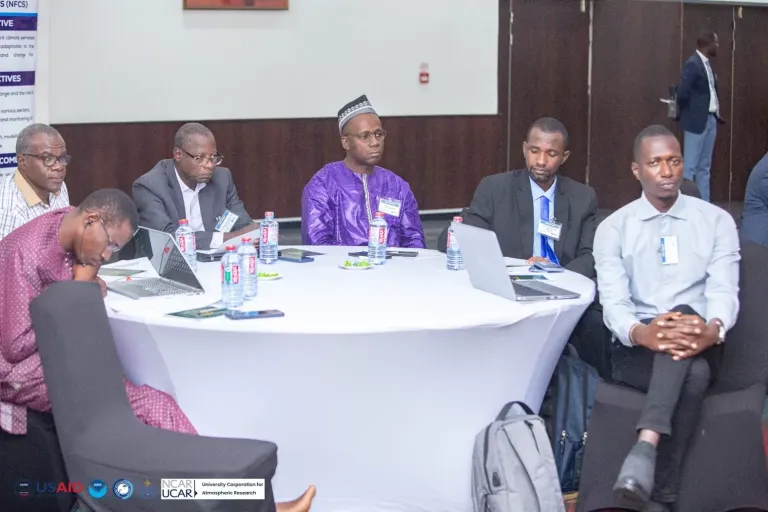
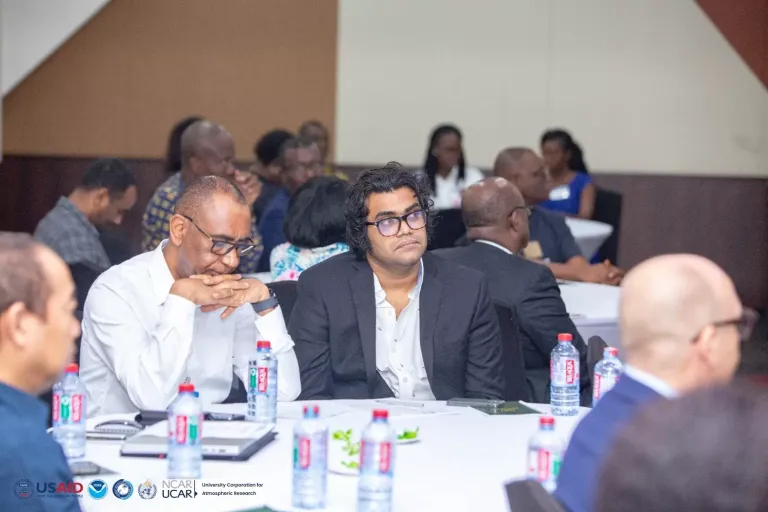
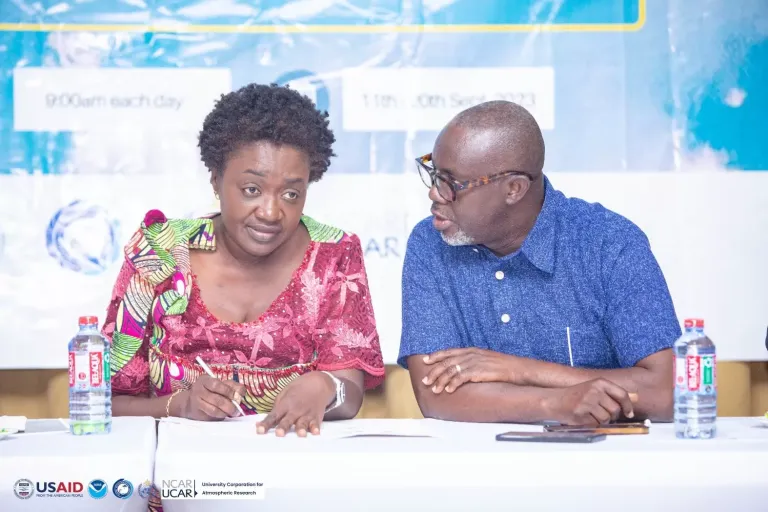
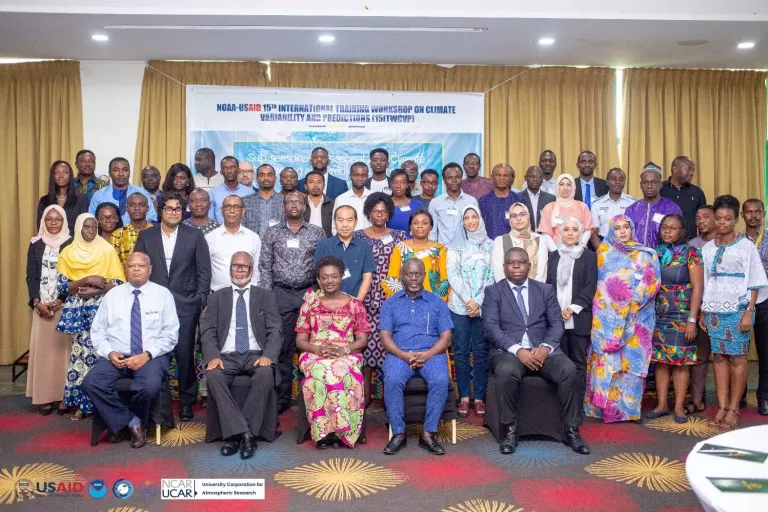
© GMet Communications.

